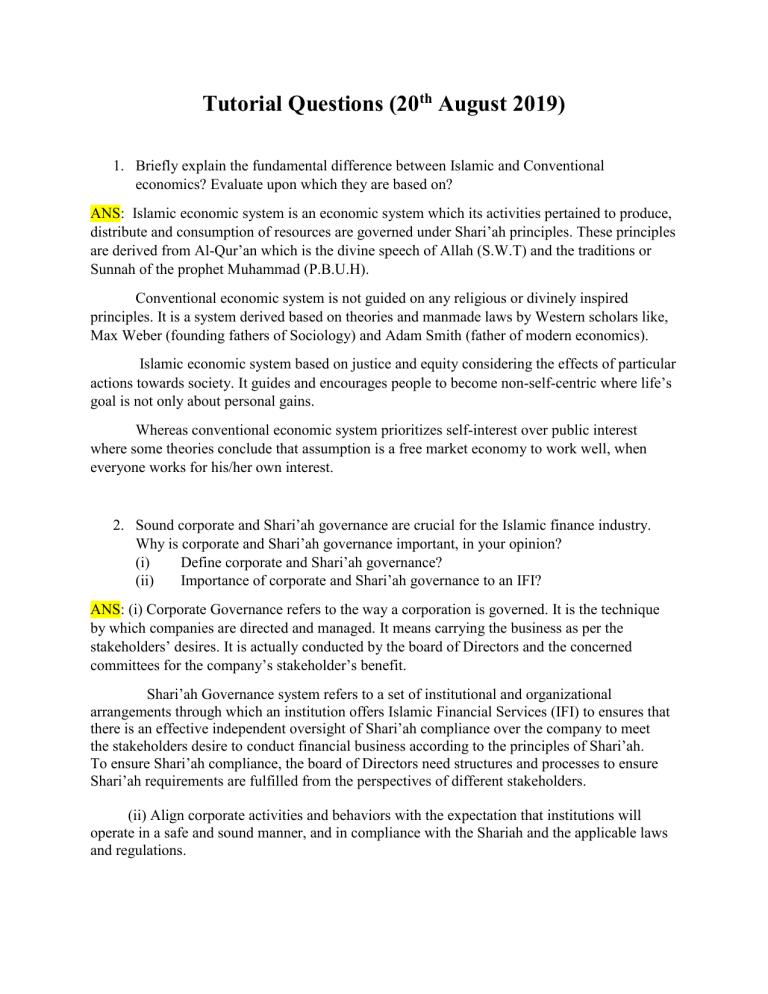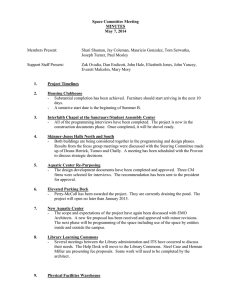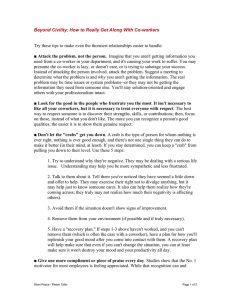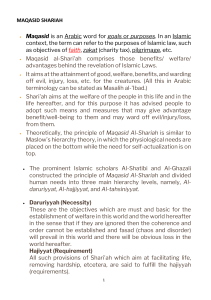
Tutorial Questions (20th August 2019) 1. Briefly explain the fundamental difference between Islamic and Conventional economics? Evaluate upon which they are based on? ANS: Islamic economic system is an economic system which its activities pertained to produce, distribute and consumption of resources are governed under Shari’ah principles. These principles are derived from Al-Qur’an which is the divine speech of Allah (S.W.T) and the traditions or Sunnah of the prophet Muhammad (P.B.U.H). Conventional economic system is not guided on any religious or divinely inspired principles. It is a system derived based on theories and manmade laws by Western scholars like, Max Weber (founding fathers of Sociology) and Adam Smith (father of modern economics). Islamic economic system based on justice and equity considering the effects of particular actions towards society. It guides and encourages people to become non-self-centric where life’s goal is not only about personal gains. Whereas conventional economic system prioritizes self-interest over public interest where some theories conclude that assumption is a free market economy to work well, when everyone works for his/her own interest. 2. Sound corporate and Shari’ah governance are crucial for the Islamic finance industry. Why is corporate and Shari’ah governance important, in your opinion? (i) Define corporate and Shari’ah governance? (ii) Importance of corporate and Shari’ah governance to an IFI? ANS: (i) Corporate Governance refers to the way a corporation is governed. It is the technique by which companies are directed and managed. It means carrying the business as per the stakeholders’ desires. It is actually conducted by the board of Directors and the concerned committees for the company’s stakeholder’s benefit. Shari’ah Governance system refers to a set of institutional and organizational arrangements through which an institution offers Islamic Financial Services (IFI) to ensures that there is an effective independent oversight of Shari’ah compliance over the company to meet the stakeholders desire to conduct financial business according to the principles of Shari’ah. To ensure Shari’ah compliance, the board of Directors need structures and processes to ensure Shari’ah requirements are fulfilled from the perspectives of different stakeholders. (ii) Align corporate activities and behaviors with the expectation that institutions will operate in a safe and sound manner, and in compliance with the Shariah and the applicable laws and regulations.




